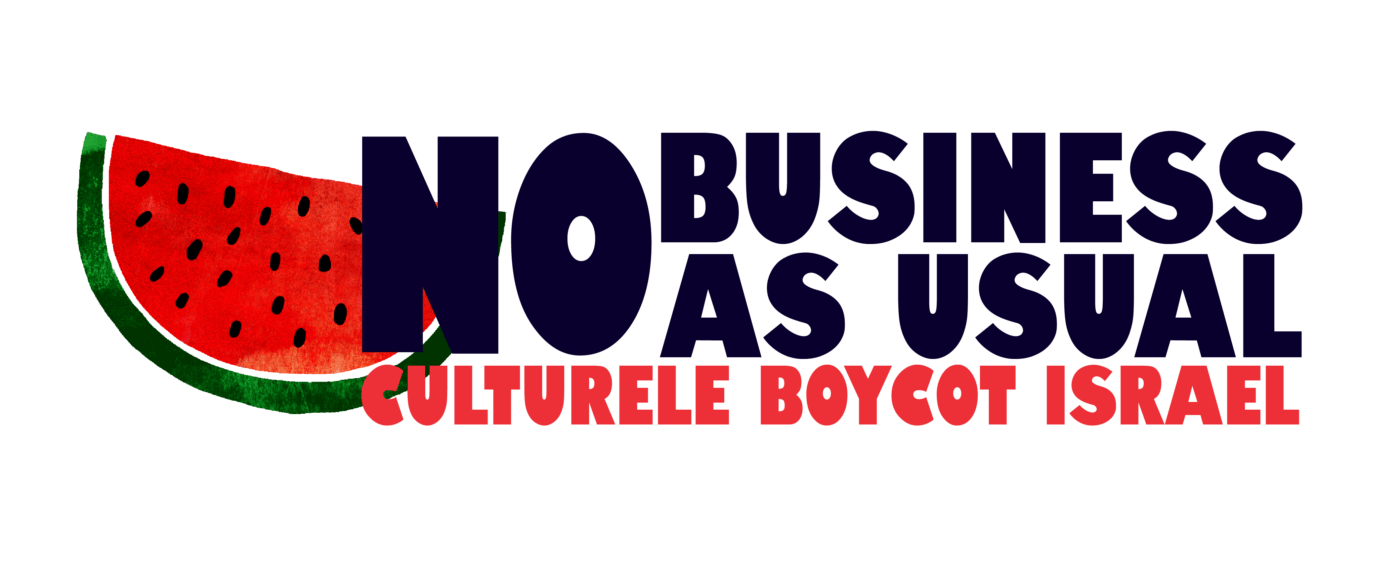
No Business As Usual: Cultural Boycott Israel
Amid the ongoing war crimes, crimes against humanity, and what has been widely recognised by all authoritative institutions as a genocide of the Palestinian people, Framer Framed – along with fellow members of the Dutch and Belgian cultural sector – supports a cultural boycott of the Israeli state and of all complicit Israeli institutions and companies.
Exempted from the boycott are those Israeli institutions and companies that are not complicit in violations of international law and have unequivocally spoken out against genocide, apartheid and the illegal occupation. The boycott is explicitly not directed at individuals or their origins, and therefore not at Jewish people or Israelis as such, but rather at the complicity of the Israeli state and Israeli institutions and companies in grave human rights violations against the Palestinian people.
For decades, artists and cultural workers around the world have been actively speaking out against Israel’s grave human rights violations. After nearly two years of genocide in Gaza, characterized by military violence, starvation and the destruction of the medical and educational infrastructure, Israel has further escalated its attacks since March 2025 with the aim of the total annihilation of life in the Gaza Strip. Every form of Palestinian culture has been systematically destroyed: churches, mosques, libraries, educational and heritage sites have been the main targets, along with the killing of journalists, humanitarian staff, medical workers, intellectuals and artists. Life is also increasingly being rendered impossible for Palestinians in the occupied West Bank and Jerusalem. This is but the latest phase in a longstanding policy of apartheid and military occupation that has systematically oppressed, marginalised and forcefully displaced Palestinians for decades.
A cultural boycott alone cannot end the genocide, apartheid or illegal occupation. We thus echo longstanding Palestinian calls on the sports sector, academia, the economic sectors and all spheres of politics to sever ties with complicit institutions. Only a groundswell of collective grassroots and civil society action can force Israel to fully comply with its obligations under international law.
This decision to commit to a boycott has not been taken lightly. The cultural sector is guided by the belief that artistic exchange and collaboration ought to make the world a better place, or at the very least, do no harm. There can, however, be no question of continuing business as usual: this impunity must come to an end.
More information about the boycott can be found at cultureleboycotisrael.nu